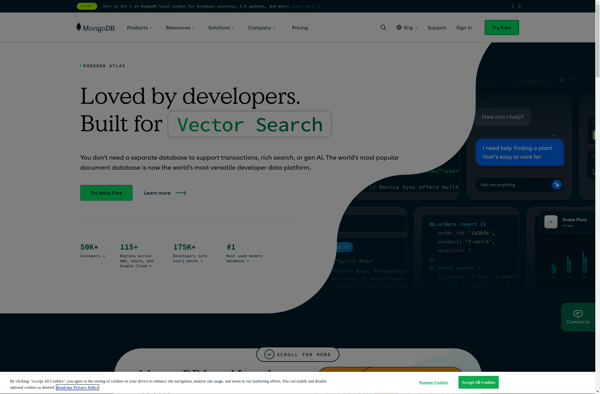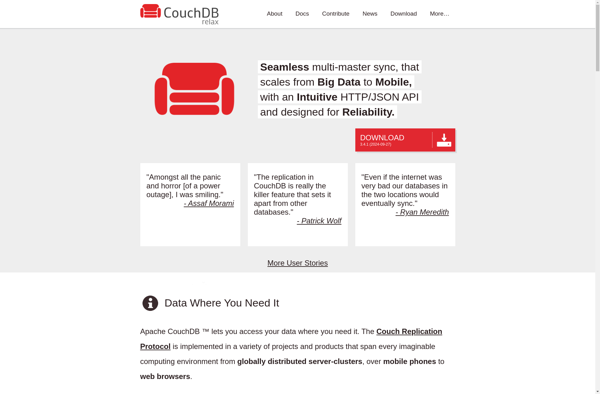Orchestrate
Orchestrate: Visual Database Software for Workflow Automation
Visual database software allowing users to build workflows and connect to data sources without coding, with an intuitive drag-and-drop interface for extract, transform and load data.
What is Orchestrate?
Orchestrate is a visual data transformation and integration platform designed to help users build scalable data pipelines without coding. It provides a user-friendly graphical interface that allows users to visually map out workflows to extract data from various sources, transform and enrich data on-the-fly, and load it into destinations.
Key features of Orchestrate include:
- Intuitive drag-and-drop interface to visually map out data workflows
- Broad set of pre-built connectors to databases, cloud apps, APIs etc.
- Tools to transform, enrich, and cleanse data as it flows through the system
- Scheduling, monitoring and management of data pipelines
- Collaboration features to build and manage workflows as a team
- Integration with Git for version control and code reuse
- Scalable architecture to handle large data volumes
- Secure data handling with encryption, access controls etc.
Orchestrate allows people of varied skill sets to construct production-grade data workflows without coding. This improves productivity as less technical users can build and modify workflows. The visual workflows also enhance understanding compared to coded logic. Orchestrate saves significant developer time and resources compared to traditional hand-coding of data integration solutions.
Orchestrate Features
Features
- Visual interface to build workflows and connect to data sources
- Drag-and-drop interface to extract, transform and load data
- Connect to various databases and APIs
- Schedule and automate workflows
- Collaboration features
Pricing
- Freemium
- Subscription-Based
Pros
Cons
Official Links
Reviews & Ratings
Login to ReviewThe Best Orchestrate Alternatives
Top Ai Tools & Services and Workflow Automation and other similar apps like Orchestrate
Here are some alternatives to Orchestrate:
Suggest an alternative ❐MongoDB

CouchDB

RestDB.io

OrbitDB
